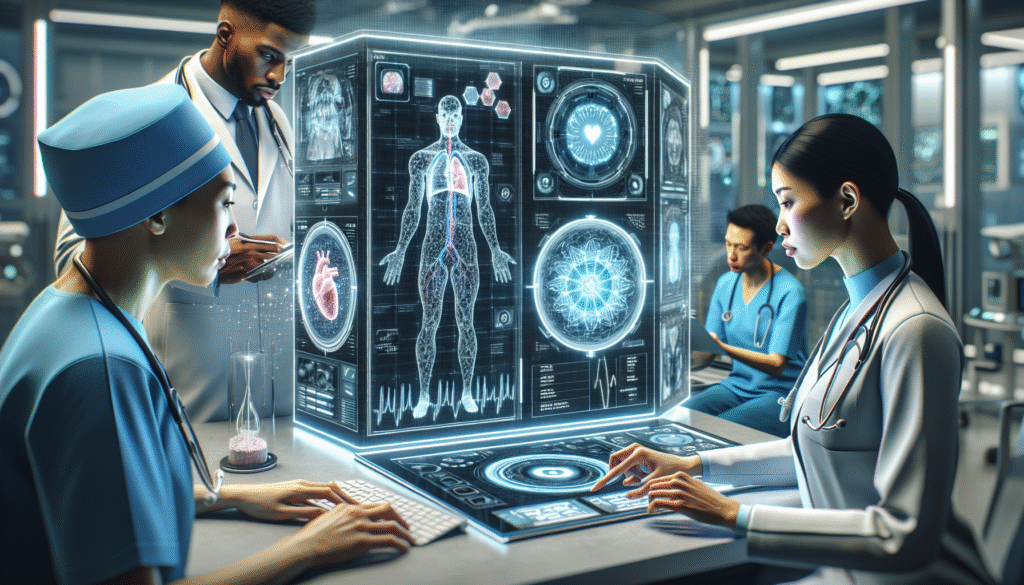AI-Driven Diagnostics in Healthcare: Transforming Cancer and Cardiovascular Care
In recent years, artificial intelligence (AI) has emerged as a transformative force in healthcare, particularly in diagnostics. AI-driven tools are revolutionizing the way medical professionals diagnose complex conditions like cancer and cardiovascular diseases. These advanced systems enhance diagnostic accuracy by analyzing vast amounts of data with precision and speed unattainable by humans alone. This article explores the impact of AI on improving diagnosis in these critical areas, delving into how machine learning algorithms can identify patterns invisible to human eyes and predict outcomes based on historical data.
Understanding AI-Driven Diagnostics
At the core of AI-driven diagnostics are sophisticated algorithms that learn from existing medical datasets. In cancer care, these tools analyze imaging scans such as MRIs, CTs, and X-rays to detect anomalies at their earliest stages. Similarly, in cardiovascular care, AI systems evaluate ECG readings and other cardiac tests to identify irregularities. By doing so, they offer faster, more reliable diagnostics that can significantly improve patient outcomes.
Enhancing Accuracy with Machine Learning
The integration of machine learning (ML) into diagnostic processes marks a significant advancement in healthcare technology. ML models are trained on extensive datasets to recognize patterns associated with specific diseases. In cancer diagnostics, this means detecting subtle signs of malignancy that might be overlooked by human eyes, thereby increasing the accuracy and reliability of diagnoses.
AI in Cardiovascular Diagnostics
In cardiovascular care, AI tools offer invaluable support by analyzing cardiac data to predict potential heart issues. These systems can assess risk factors and patient history with a level of detail that aids cardiologists in making informed decisions about treatment plans. By providing early warnings for conditions like arrhythmias or myocardial infarction, AI-driven diagnostics play a crucial role in preventive healthcare.
Challenges and Considerations
Despite their potential, AI tools in healthcare face challenges such as data privacy concerns, the need for high-quality datasets, and integration with existing medical systems. Addressing these issues is essential to fully leverage AI’s capabilities while ensuring patient safety and confidentiality.
The Future of AI in Healthcare
As technology evolves, so too does its application in healthcare diagnostics. The future holds promise for even more advanced AI tools that could offer personalized diagnostic insights tailored to individual patients’ genetic profiles. This level of customization could revolutionize treatment approaches and improve health outcomes on a global scale.
Conclusion
In conclusion, AI-driven diagnostics represent a groundbreaking development in healthcare, offering significant improvements in the accuracy and efficiency of diagnosing cancer and cardiovascular diseases. For organizations looking to implement these advanced solutions, SynconAI provides both implementation and consultation services tailored to your needs. Discover more about how AI can transform your operations by visiting their website or reaching out through the contact page. Additionally, for those interested in staying informed on the latest AI trends and news, SuperArtificialAI offers a wealth of resources at their site.



